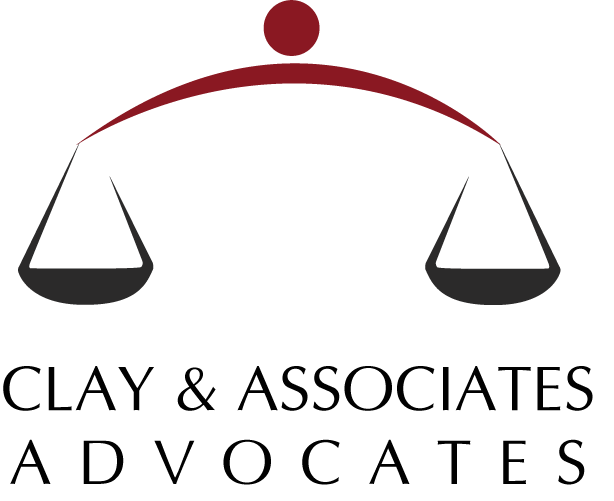INTELLECTUAL PROPERTY
Intellectual Property Legal Services
Our Intellectual Property legal services at Clay & Associates Advocates are aimed at helping all types of businesses identify, protect, develop, monetize, and enforce their Intellectual Property rights.
Intellectual Property Lawyers
OUR SERVICES
Intellectual Property lawyers help individuals and businesses properly register, protect, and manage their IP assets through various non-contentious (e.g. registering a right) and contentious (e.g. fighting an infringement) work.
This is vital for ensuring owners of Intellectual Property maximize the commercial value of their work.
Commonly, we help clients with:
- Intellectual Property strategy
- Registering and protecting trademark, patents & copyrights
- Monetising and licencing Intellectual Property
- Litigating and resolving Intellectual Property infringement
So whatever your problem or situation, our highly-trained and experienced team has seen it all before. To get started, please contact us to discuss your requirements and arrange a legal assessment.
Choose Us
ON YOUR SIDE
Before any fees, we’ll first schedule a consultation to listen and learn more about your situation.
The session is an hour long, and there are no obligations to engage our services afterward.
As part of the consultation, we’ll lean on our years of experience as Intellectual Property lawyers to suggest the best solution for you or your business.
Our friendly Intellectual Property advocates and practitioners are on hand to carry out a complimentary legal assessment of your business and advise how best to protect your valuable intellectual property, so get in touch today to discover how we can help you.
Contact
Frequently Asked Questions
Intellectual property rights are legal protections for creations of the mind, including artistic, literary, and musical works, designs, inventions, and business assets, like brand names and logos.
In Kenya, they include Trademarks, Patents, and Copyrights among others, and are registered under various government bodies such as the Kenya Industrial Property Institute and the Kenya Copyright Board.
While Kenya is still a developing nation and our laws are constantly evolving, countries such as the United States have a more mature IP market helped by offices such as the United States Patent and Trademark Office. As well as the US Copyright Office.
A trademark gives you the exclusive right to use your brand across every service or product you provide. This includes your logo, brand colours, specifical identifiers in your products, and tag-lines.
We can review your potential trademarks before you invest time and money in registering them.
We will help you assess whether it makes sense to do so, looking at all your available options, the cost, and how it works.
Patents are the legal recognition given to new, innovative, and technical inventions.
The criteria for obtaining a patent in Kenya are that the invention must be new, incorporate an inventive step, be capable of industrial application, and not fall into one of the excluded categories.
The decision to embark on patenting to protect your product needs careful consideration.
At Clay & Associates Advocates, we can guide you as to whether patenting is the right decision for your business in the context of all other options available, and we can work with specialist patent attorneys to get your application underway.
Copyright confers the right of the owner to prevent others from copying their work. It does not stifle the independent creation of works.
Copyright arises automatically upon the creation of particular works and does not need to be registered explicitly in Kenya, however, we would still recommend registration with the Kenya Copyright Board.
As copyright arises automatically upon the creation of a piece of work, i.e. without any formal registration process, a person or organisation infringes copyright if they copy your work wholly or substantially.
In some cases, copying is blatant, but most cases that end up in court are not so clear.
There is no hard and fast rule to proving copyright infringement; that’s why it’s vital to seek experienced legal advice as soon as possible when you suspect that someone is copying your work.
According to the Industrial Property Act 2001, an industrial design is defined as “any composition of lines or colours or any three-dimensional form whether or not associated with lines or colours, provided that such composition or form gives a special appearance to a product of industry or handicraft and can serve as a pattern for a product of industry or handicraft”.
Registering your designs helps safeguard your business interests with more legal protection. It’s quite a tricky process though, so we’re here to help.
To register a design and fully protect it legally, it must be new. Difficulties can arise where it is similar to an existing design.
In legal terms, the test is whether similarities are so strong that the differences are immaterial. As you may imagine, this is not always easy to clearly determine, and many legal disputes over designs arise where businesses seek to protect previously unregistered designs.
In a competitive marketplace, disputes can arise for tactical and commercial reasons, so it’s worth ensuring you have specialist legal advice from the outset.
Whilst we always recommend registering your designs where possible, in certain circumstances you can still take action to protect your work in the event of an infringement even if you only have unregistered rights.
This is because unregistered rights are similar to copyright (but expire far more quickly), in that a level of legal protection against copying automatically arises on the creation of novel designs.
